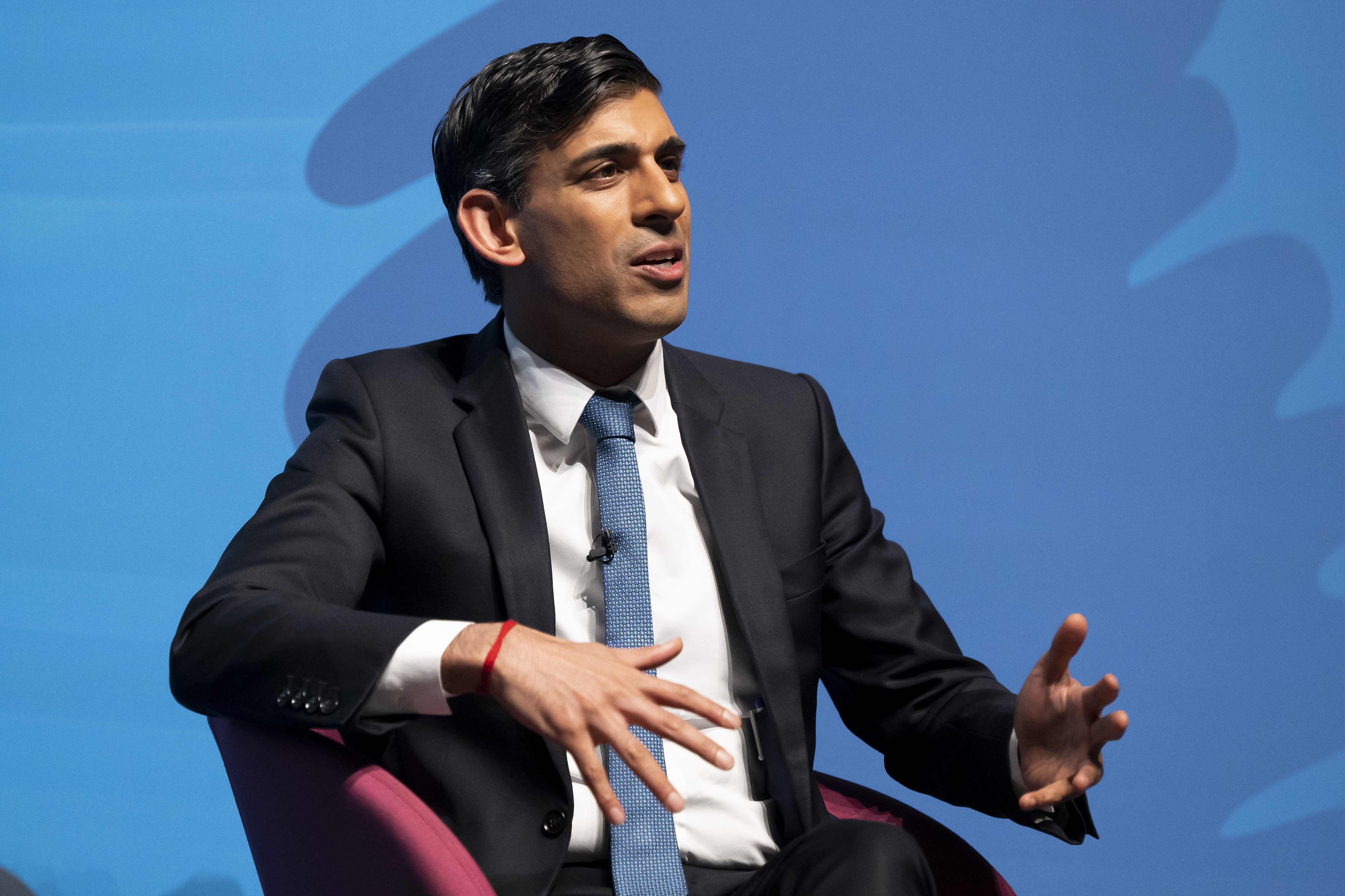LGBTQ+ founders fear revealing their identities will jeopardise funding
Calls for greater support of LGBTQ+ founders have been made, while VCs are urged to consider how they engage with the community


Nearly one-quarter of LGBTQ+ startup founders believe disclosing their sexual or gender identity could pose disadvantages when seeking investment, research finds.
The LGBTQ+ Founder report, compiled by Proud Ventures, showed that 18% of founders think their identity may have a negative impact on fundraising attempts while 27% said they believe their identity could give them a general disadvantage.
The report highlighted concerning statistics on inclusivity in the UK tech industry, noting that three-quarters of startup founders “aren’t comfortable sharing their identities with others”.
Heather Delaney, MD and founder of London-based tech consultancy Gallium Ventures, told IT Pro this underlines a long-running trend of LGBTQ+ startup founders being forced to conform to both industry and societal ‘norms’ in order to achieve success.
"LGBTQ+ founders who find themselves looking for funding for their business will often hide their true self in order to fit in with 'the norm' and be judged based on their hard work and dedication, instead of the potential where they might be judged for who they love,” Heather said.
“It's a tough reality many founders have found themselves in whether fundraising, growing a client base, or even hiring.”
LGBTQ+ funding options
In the venture capital space, Proud Ventures observed similar trends regarding individuals disclosing their identities.
Get the ITPro daily newsletter
Sign up today and you will receive a free copy of our Future Focus 2025 report - the leading guidance on AI, cybersecurity and other IT challenges as per 700+ senior executives
Around 79% of LGBTQ+ investors were found to have withheld their identity from colleagues while 26% said they would never disclose their identity with other investors in the ecosystem.
Proud Ventures said this highlights that LGBTQ+ founders face “additional barriers” traversing the VC ecosystem, and this acutely impacts non-binary founders and those who identify as women.
Data shows that gay founders raised a median 2.25x more than bisexual founders and 22x more than lesbian founders.
The report claimed that, despite calls across the industry for greater support for LGBTQ+ inclusivity, investors still “overlook” founders, or are “unsure of how to support them”.
"Our survey data showed that just one-third of VCs who stated they were taking action to support ‘diverse’ founders were doing anything to support LGBTQ+ founders,” the report noted.
Responding to the report findings, diversity and inclusivity consultancy Templeton & Partners told IT Pro that founders are “right to worry” that their LGBTQ+ status might affect funding outcomes given long-standing issues affecting founders.
In the US, for example, LGBTQ+ founders have raised less than 1% of venture capital funding. Meanwhile, in the UK, founders continue to face similar challenges that force them to “work harder than peers to receive opportunities and success”.
RELATED RESOURCE

What 2023 will mean for the industry
What do most IT decision makers really think will be the important trends and challenges in the coming year?
“Like most LGBTQ+ tech professionals, unconscious rather than overt bias is likely to present multiple hurdles for LGBTQ+ founders at multiple stages,” the consultancy said.
“We know female entrepreneurs receive far less funding compared to their male counterparts, and founders’ sexual orientation and gender identity have a similar negative impact on their success rates.”
“Many will continue to hide their identities from current colleagues and future partners, but a large proportion will also streamline their options to screen for more inclusive potential partners, limiting their own chances of success, and continuing to deprive less diverse VCs of the opportunity to become more inclusive.”
Supporting tech sector inclusivity
Proud Ventures outlined a series of recommended steps to bolster inclusion and create a more equitable tech and VC landscape for LGBTQ+ founders.
In particular, the report noted that VC firms should place a stronger focus on hiring more diverse investment teams.
“Research is clear that more diverse investment teams both perform better in terms of returns, but also attract a more diverse dealflow,” the report said.
Similarly, VCs were advised to quantify DEI metrics in their funds to measure the diversity of deal flows and investments in their portfolio.
Meri Williams, CTO at Pleo, said that policies which offer support for diverse employees are vital to embedding a culture of acceptance within organisational structures.
"In practice, creating support structures for employees from underrepresented groups will not only help promote diversity, but create a culture of acceptance at the very heart of the business," Williams said. "Companies should also conduct a regular review of the diversity statistics of one's own workforce to ensure that the company is on the right track to achieve the D&I goals."
"After all, if the company is serious about promoting diversity, equality, inclusion, and belonging, it should check how representative it really is. As a sector that prides itself on being for everyone, IT companies in 2023 need to ensure that everyone is represented, and that everyone is made to feel like they belong and can succeed on their own terms."

Ross Kelly is ITPro's News & Analysis Editor, responsible for leading the brand's news output and in-depth reporting on the latest stories from across the business technology landscape. Ross was previously a Staff Writer, during which time he developed a keen interest in cyber security, business leadership, and emerging technologies.
He graduated from Edinburgh Napier University in 2016 with a BA (Hons) in Journalism, and joined ITPro in 2022 after four years working in technology conference research.
For news pitches, you can contact Ross at ross.kelly@futurenet.com, or on Twitter and LinkedIn.
-
 Asus ZenScreen Fold OLED MQ17QH review
Asus ZenScreen Fold OLED MQ17QH reviewReviews A stunning foldable 17.3in OLED display – but it's too expensive to be anything more than a thrilling tech demo
By Sasha Muller
-
 How the UK MoJ achieved secure networks for prisons and offices with Palo Alto Networks
How the UK MoJ achieved secure networks for prisons and offices with Palo Alto NetworksCase study Adopting zero trust is a necessity when your own users are trying to launch cyber attacks
By Rory Bathgate
-
 Is Rishi Sunak’s ‘Unicorn Kingdom’ a reachable goal or a mere pipedream?
Is Rishi Sunak’s ‘Unicorn Kingdom’ a reachable goal or a mere pipedream?Analysis Plunging venture capital investment and warnings over high-growth company support raise doubts over the ‘Unicorn Kingdom’ ambition
By Ross Kelly
-
 Some Tech Nation programs could continue after Founders Forum acquisition
Some Tech Nation programs could continue after Founders Forum acquisitionNews The acquisition brings to a close a months-long saga over what the future holds for Tech Nation initiatives
By Ross Kelly
-
 Podcast transcript: Startup succession: From Tech Nation to Eagle Labs
Podcast transcript: Startup succession: From Tech Nation to Eagle LabsIT Pro Podcast Read the full transcript for this episode of the ITPro Podcast
By Rory Bathgate
-
 The ITPro Podcast: Startup succession: From Tech Nation to Eagle Labs
The ITPro Podcast: Startup succession: From Tech Nation to Eagle LabsITPro Podcast Some small firms are already lamenting the loss of Tech Nation, but Barclays Eagle Labs has much to offer the sector
By Rory Bathgate
-
 Don’t count Barclays Eagle Labs out just yet – it can deliver in ways Tech Nation never has
Don’t count Barclays Eagle Labs out just yet – it can deliver in ways Tech Nation never hasOpinion Tech Nation has a great track record, but Eagle Labs has the experience, the financial clout, and a clear-cut vision that will deliver positive results for UK tech
By Ross Kelly
-
 UK tech sector could face a ‘unicorn winter’ amid spiralling economic conditions
UK tech sector could face a ‘unicorn winter’ amid spiralling economic conditionsNews Tech Nation’s final piece of industry research calls for action to support continued ecosystem growth
By Ross Kelly
-
 "It's still not great": Industry divided on government's SMB tax relief package
"It's still not great": Industry divided on government's SMB tax relief packageNews The government’s handling of R&D tax credits has left SMBs with a “sense of disbelief”
By Ross Kelly
-
 UK startup's Equinix deal marks step towards broad quantum computing access
UK startup's Equinix deal marks step towards broad quantum computing accessNews Businesses around the world will be able to use its quantum computing as a service platform through Equinix
By Zach Marzouk